Explore the ScaleUp Annual Review 2021
Select a section to expand and explore this year's review.
CONTENTS

Introduction 2021

Chapter 1 2021
The ScaleUp Business Landscape

Chapter 2 2021
Leading Programmes Breaking Down the Barriers for Scaleups

Chapter 3 2021
The Local Scaleup Ecosystem

Chapter 4 2021
The Policy Landscape

Chapter 5 2021
Looking forward

Annexes 2021

Scaleup Stories 2021
Scaleup Stories
Bio-bean
Founded in 2013, bio-bean has created a world-first sub-sector, transforming these spent coffee grounds into value at an industrial scale.
DPO Centre
If GDPR was a catalyst, regulatory divergence in data protection laws created by the UK's exit from the EU is also proving to be a spur to growth.
Sponge Hammer
Sponge Hammer has quickly evolved into a back-end development company, designing and developing back-end features to support new content for top games companies.
SnapDragon Monitoring
The innovative online brand protection company that’s leading the global fight against fakes and copycats.
Inovus Medical
The scaleup that is building a global business by changing the face of surgical training.
Urban Planters
A truly green business that’s growing as healthily as any of its 50,000 plants.
Evenbreak
About 50,000 disabled candidates have registered on the job board, and about 30,000 of them are “actively engaged” with Evenbreak. Jobs all over the world are now posted on it.
Form 3
Revenues and headcount are growing at more than 100% at this payment technology scaleup
Blake Mill
A mechanical engineer joins a mathematician and a physicist, all with expertise and backgrounds in financial technology, to start a business.
GuyKat
Sometimes it takes a pandemic – and a scaleup programme – to unlock the growth potential of a business.
The Figaro Shop
The socially focused repair shop which is fixing cars and creating careers
Sales Geek
When the pandemic hit, income fell off the cliff. But Sales Geek didn’t just hold on; they used their time to develop new products and services that have become the keys to their growth.
Bio-bean
The UK drinks 95 million cups of coffee every day – two per adult – which translates into an estimated 250,000 tonnes per year of spent coffee grounds. Much of this discarded resource ends up in landfill, emitting greenhouse gases, including methane.
Enter bio-bean, the world’s largest recycler of spent coffee grounds. Founded in 2013, bio-bean has created a world-first sub-sector, transforming these spent coffee grounds into value at an industrial scale, giving new life to a material previously considered waste, and contributing to a circular economy. It has launched coffee collection services and has built the world’s first industrial-scale coffee recycling factory at Alconbury in Huntingdonshire.
There’s a long way to go – working with the likes of Costa Coffee, Nestle, the waste management industry, as well as airports, train stations and universities, bio-bean currently processes 7,500 tonnes of spent coffee grounds every year – but the team is buzzing. By the middle of next year, Managing Director George May anticipates the factory will be processing more than 10,000 tonnes.
The current mainstay of the business is its Coffee Logs which are used as a domestic heating fuel. bio-bean is also producing pellets for large industrial biomass boilers. Another application that is at an earlier stage, but which May says has “interesting opportunities” is the use of the residual flavour compounds as a natural extract for food and beverage manufacturers.
But the most significant growth opportunity is bio-bean’s bulk raw material, Inficaf. bio-bean is already supplying into industries as diverse as cosmetics, automotive brake pads, plastics and bioplastics, where Inficaf can displace fossil- or petrochemical-based raw materials to help industries reduce their carbon footprint.
It has, at times, been a hard slog, growing a capital-intensive business for which there was no blueprint, says May. But the drive to scale and profitability is now well under way, and in parallel the company has also gained Certified B Corporation status.
“We always set out to do this at scale. If you want to drive behaviour change and make a meaningful impact on greenhouse emissions, it has to be done at scale.”
He says that Innovate UK has been a major source of support in the company’s evolution. “Their loans and grants have provided support for our product and process development. A number of projects would not have happened at the speed we achieved had it not been for Innovate UK,” he says. One such grant led to the creation of Inficaf.
The company’s relationship with Innovate UK has led to other good relationships, such as with the Department for International Trade, and May has also become a member of the peer network established by Innovate UK EDGE in collaboration with the ScaleUp Institute.
“The peer network has been hugely helpful,” he says. “You can find yourself being dragged into issues that are two inches in front of your nose. Having this network and the wider relationships that it brings enables me to pick people’s brains and get a broader perspective.”
Over its eight year life, bio-bean has raised several rounds of equity finance; from the initial friends and family round to a diverse group of investors including the VCT manager Gresham House, a Belgian family fund, and a US family fund. As a capital intensive business, it has tapped into EU grant funding (such as Horizon 2020), asset financing and local authority capital grants.
And bio-bean continues to seek out new routes to access scaleup finance. Recently, the company closed a fundraising round that has brought in the Low Carbon Innovation Fund, a co-investment initiative aimed at SMEs operating in the East of England who are developing or deploying environmentally beneficial technologies. “It is brilliant to see funders in the local area support businesses such as ours,” says May. “It’s a great boost.”
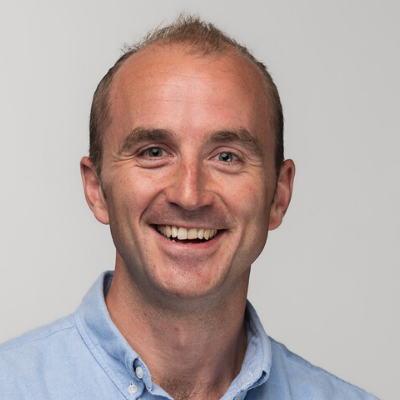
DPO Centre
Rob Masson has always been seeing new business opportunities. “You are never an entrepreneur, you’re just always in practice,” he says. His first venture was a software business that he started as an 18-year-old at college. At the dawn of the internet age, he started a web development agency and built e-commerce systems. And four years ago, as he was in the earn-out period after exiting the agency, he saw another big opportunity – in data protection.
There was confusion and misconceptions as to what organisations were required to do prior to GDPR coming into force on 25 May 2018, with a massive ensuing demand for consultancy and presentations.
But Masson saw that once GDPR was in place, demand would switch to finding people with the skills and knowledge about data protection. “The UK market alone was going to require in excess of 15,000 data protection officers to meet the new regulatory requirements, but there were only around 5,000 in existence.”
The DPO Centre, which he founded in 2017, places data protection officers (DPOs) on a fractional basis – anywhere between one to eight days per month – into companies. And it took off from 26 May 2018, when GDPR became law. “We have grown vertically ever since,” he says. “The company has doubled its revenues each year. By 2026, we will hit £39m in revenues and we are tracking that curve. We are at the start of the hockey stick.”
Currently, it has 36 employees but, says Masson, “we can’t grow the team fast enough. Recruitment is our biggest problem.”
The pool of experienced DPOs in the UK is not that large and the DPO Centre is seeking to recruit ready-made DPOs. “There are plenty of people with specialist knowledge of privacy and data protection but we need people who understand the commercial aspects, who can deliver on site as a part of each client’s team, providing advice according to each client’s risk appetite and profile.”
The majority of the DPO Centre’s customers are medium-sized businesses who are finding the regulatory complexities in this area increasingly problematic to manage in-house.
In addition, some corporates are also starting to look to outsource their data protection department – and landing such contracts will further accelerate growth. “We will start to nip at the heels of the large professional advisory firms,” says Masson. “We will be 300-strong in the next three years and our expertise will be focused on data protection.”
He emphasises that the value for companies of getting data protection right is not about mitigating reputational risk and avoiding fines arising from data breaches. “Do it well and you build trust and engagement and loyalty among your customers. It creates business value.”
If GDPR was a catalyst, regulatory divergence in data protection laws created by the UK’s exit from the EU is also proving to be a spur to growth. “Brexit has been a massive bonus,” says Masson. So too has been the burgeoning of such legislation in other nations. “It’s so important for us to keep scaling our team so we can keep creating an ever-deeper pool of global knowledge about data protection.”
The Covid pandemic has also been good for the DPO Centre as the transition to working from home threw up new data protection issues that privacy professionals had to deal with.
“It reinforced how dynamic and adaptable data protection practices and frameworks need to be,” says Masson. In many cases, data processing is occurring at home, making it much harder to apply the appropriate ‘technical and organisational measures’ that the law demands and to respond fully to individuals’ rights requests.”
So when Covid first hit, Masson doubled down on marketing and branding, introduced new initiatives and switched from face-to-face event led marketing to a fully digital one. The company’s last full year results showed 91% growth in revenue, 102% growth in EBITDA and 106% growth in headcount.
Masson is on the Scaleup programme run by Scale Up New Anglia. “Every business has its glass ceilings and so the programme enables me to exchange ideas and experiences with other business leaders who are also looking to break through theirs,” he says. “I always want to engage with external partners – you never know everything. No matter how experienced you are, you have a limited view. ” In the same spirit, he has assembled an advisory board as “a resource that helps to expand our perspective.”
The DPO Centre has offices in Ipswich, London and Dublin along with a network of ‘establishments’ in all 27 EU member states (which provides a postal and visiting address – “more than a brass plaque but not a fully-manned office” is how Masson describes them). Looking further afield, Masson says that he is attracted by the potential in the Middle East, Latin America and Australasia but for now the UK will remain the prime market. “There are 60,000 businesses here employing more than 50 people who arguably need to have a DPO. We reckon our market share is 0.6 per cent at present. That’s a massive opportunity for us to go after. We have a defined business plan – we just need to scale it.”
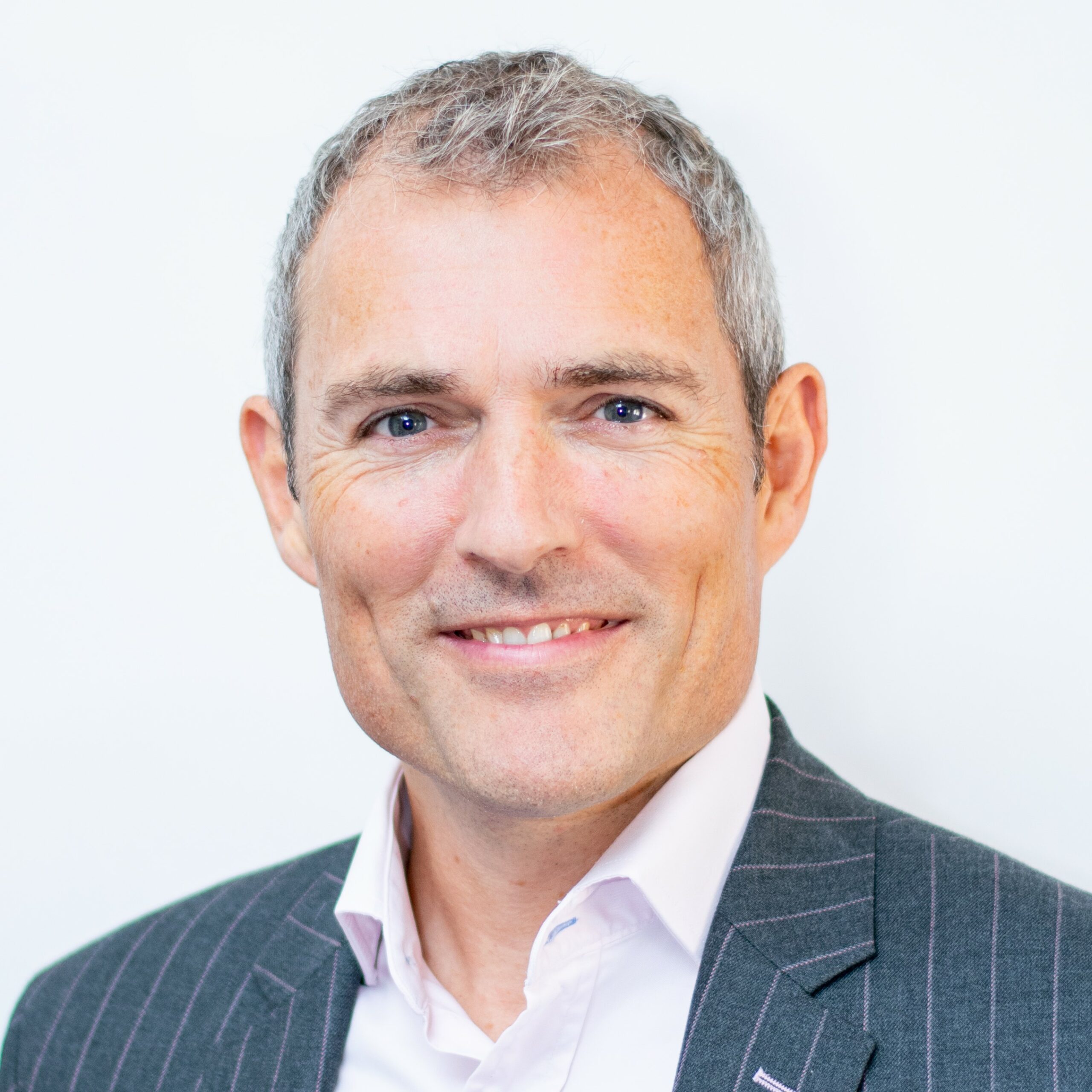
Sponge Hammer
After more than 15 years in the games industry, Csaba Berenyi set out on his own in 2016. With his background as a programmer, he was initially hesitant about starting a business. “I was a Hungarian techie who didn’t know what it took to run a British company,” he says. Initially, he decided to run it as a one-man operation so that he could “learn the language of business.”
But he knew that he liked working in a team – and he proved to be a fast learner. Sponge Hammer has quickly evolved into a back-end development company, designing and developing back-end features to support new content for top games companies such as Rare. “We have supported their Sea of Thieves game for some time and it won a BAFTA this year in the best evolving game category. I’d like to think we contributed to this fantastic achievement.”
From the outset, Berenyi structured Sponge Hammer as a remote working operation based out of Leamington Spa. Currently 22 strong, the team is based in the UK, Spain, Hungary, Romania and Russia.
He has consciously sought to hire from outside the games sector. as he thinks that the industry too readily looks to hire from within. “It can be a bit of a club. The first question many games companies ask is ‘what game do you play?’
Berenyi was recommended to the Creative Scaleup programme through the local Chamber of Commerce. At first, he couldn’t believe that there wasn’t a catch: “here was a programme that contained so much of the information that I wanted to help me grow my business – and it was fully funded,” he says.
Above all, the programme has given Berenyi the confidence to scale up. “It opened my eyes,” he says, “and made me believe that I could achieve much more.” It has also helped Berenyi to structure the business for growth. “There were areas of the business where we were still in the ‘winging it’ category,” he says. Since joining the Creative Scaleup programme, Sponge Hammer has taken on 14 new full-time and part-time employees.
The hiring won’t stop there. A new back-end development team is being assembled to fulfill the growing pipeline of work. Berenyi is turning his thoughts towards building a board.
Sponge Hammer is also branching out into development of its own games. A sister company, Sponge Hammer Games, has started a project that aims to provide a safe digital space, entertainment and education to small children. “It’s been progressing well. The project is charming and makes us smile every day.”
In addition, he is looking for projects that will make a green difference by, for example, reducing energy use in games.
His growth plans remain focused on the UK market but Sponge Hammer will establish an EU base so that he can attract European talent. “Brexit has been a hit to the talent pool,” he says, “but I know we can become one of the largest service companies in Europe for the games industry.”
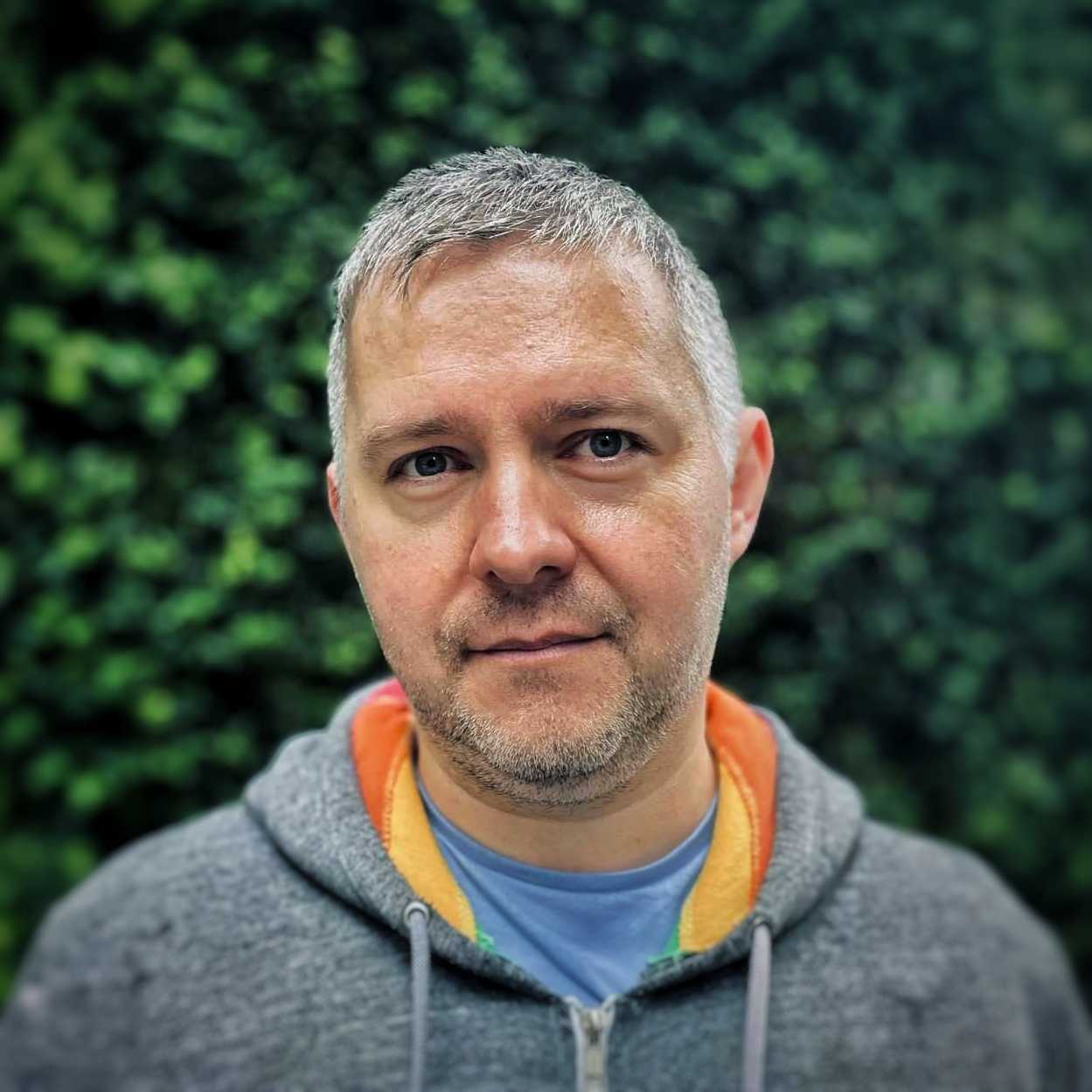
SnapDragon Monitoring
Rachel Jones founded SnapDragon Monitoring as a result of bitter experience; after inventing – and selling around the world – a baby product called the Totseat, which she discovered was being counterfeited. She couldn’t afford the time or the cost of the legal processes to find, identify and remove counterfeit products for sale online – so SnapDragon was her response “to democratise online brand protection” for others.
SnapDragon Monitoring’s ‘Swoop’ platform searches for copies and counterfeits of products and brands, so that they can be removed from sale by taking down the link to the infringing product and also to the seller. By removing the visibility of fake or copycat products, this prevents the export, import and distribution of these products. “There are many reasons why people shouldn’t buy fakes and they aren’t just about the reputation of the business and the safety of consumers; criminals profiteer from all this illicit money,” she says.
The pandemic has made things worse. “We have seen increasing numbers of small brands being ripped off around the world,” she says, “and another problem has been the huge growth in fake domains.”
Most of SnapDragon’s customers are SMEs who pay a monthly fee for monitoring however many sites, in whatever territories, they wish to watch. SnapDragon offers a managed service for those who haven’t got the resources to take down what can be thousands of links of infringing products. Initially, SnapDragon started out in the baby and toy sectors because of Rachel’s experience. Today SnapDragon covers a wide range of manufactured products, from travel goods to electronic components. In 2020, the company won a Queen’s Award for Enterprise: Innovation.
To date, SnapDragon has raised just over £3m in equity finance. Gender bias has been one of the most significant hurdles to overcome, Rachel says. “The biggest challenge is being a female looking for money. The percentage of funds raised that go to businesses run by women is tiny – just 3%; these investment figures are just appalling.” But, on a positive note, she adds that SnapDragon has had strong support from Scottish Enterprise and Mercia, and has recently attracted a syndicate of angel investors and the Angel CoFund.
SnapDragon has also been a participant on the Scottish Enterprise high growth platform. “Scottish Enterprise has provided training, guidance, contacts as well as investing in the business,” she says. “They have been super-helpful.”
An Innovate UK grant, right at the beginning of the pandemic, also proved to be invaluable. SnapDragon had seen a plunge in income as clients paused their subscriptions as retail closed and supply chains were disrupted – so the Bogus Buster project was born – a consumer website to help people avoid online scams. And although the funding has since expired, SnapDragon has kept the site going on a pro bono basis. “We’ll do that for as long as we possibly can because we know it’s really helpful. There are other excellent sites now, but ours was the first that brought all the guidance and advice to help consumers avoid scams together.”
The proceeds of the recent fundraise will go into technology development. “The technology is expensive and difficult to develop,” she says, “because we are monitoring platforms which themselves are changing constantly. Every platform holds its data in different places. And a new e-commerce platform can go live in, say, Indonesia on Monday – and have nine million users by Friday.”
Much of the technology development takes place in Shetland after Rachel met the founder of software development company Mesomorphic while attending the entrepreneurship programme at MIT. “Edinburgh met Shetland in Boston and we came back to change the world,” she laughs.
With an international client base, SnapDragon’s multinational team – there are 14 nationalities and 16 languages spoken in its team of just over 30 – is focused on developing relationships with the world’s main ecommerce platforms in their native languages, helping the speed and efficiency of taking down links. Growth will also come from increasing the number of partnerships with consultancies, law firms and accountancy firms. And an upcoming Software as a Service (SaaS) product will encourage and train businesses to take down the links themselves.
The quest for talent has become increasingly competitive in the past couple of years but SnapDragon has added seven people during this time. That includes the appointment of senior tech executive Geraldine Kelly as non-executive chairman, and Angela Brown as finance director.
“We are punching well above our weight in the space and we would like to continue to double growth year on year,” she says. “In the last 12 months we have prevented more than £100m of fake goods being sold. But to keep one step ahead of the counterfeiters we have to be able to retain and recruit the right people and deliver affordable technology so that more companies can attack this problem themselves.”
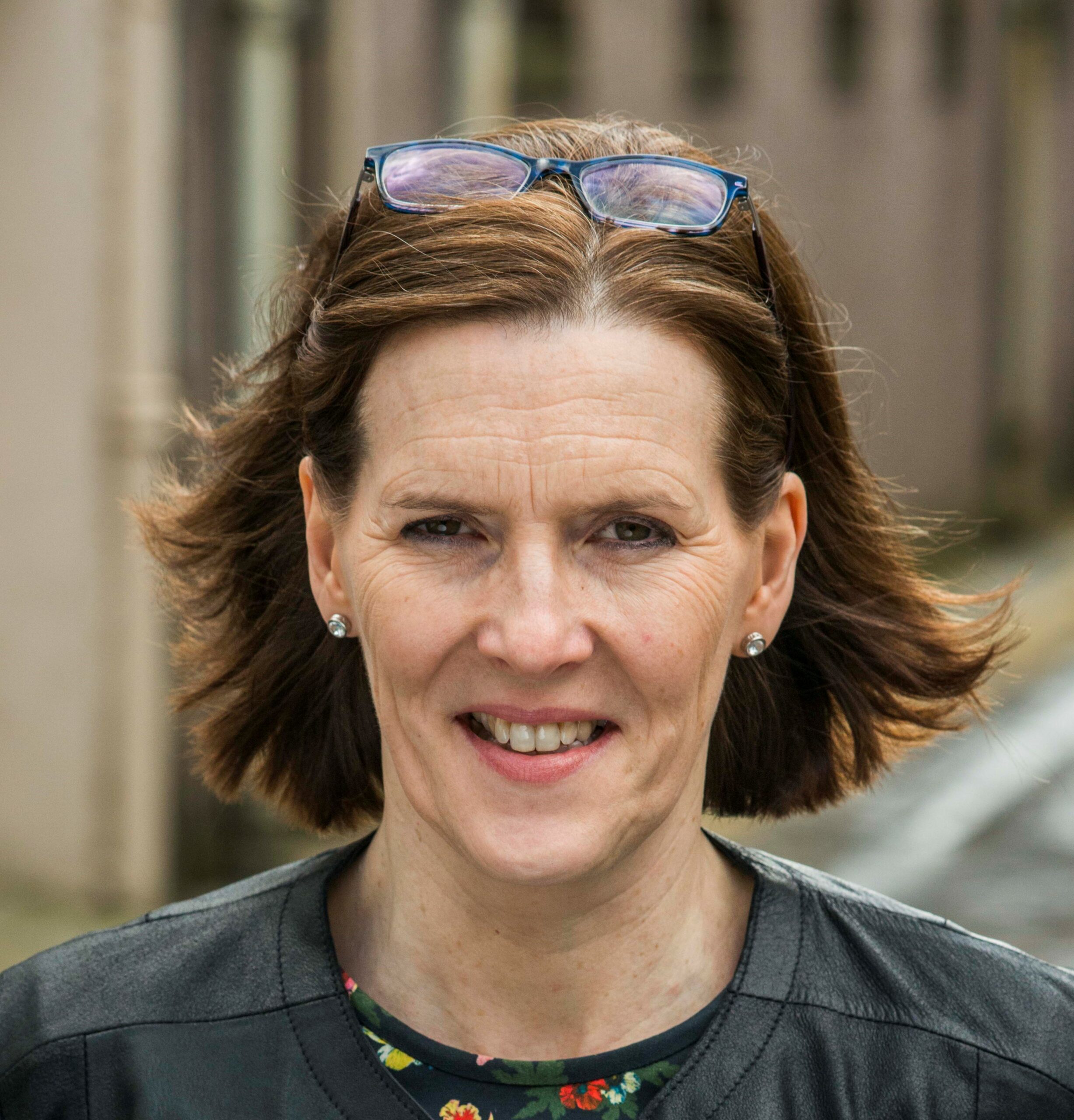
Inovus Medical
In 2012, two youthfully exuberant 23-year-olds with no money and no contacts decided they were going to build a global business and change the face of surgical training.
Step forward nine years, and Inovus Medical‘s technology is already in more than 60% of NHS trusts and has been sold into more than 70 countries. It has gone from making its first kit with a heat gun, a drill and sheet of plastic in a double garage to a 30-strong business in a facility in St. Helens deploying advanced additive manufacturing technologies. It is rapidly becoming the de facto training method in the UK in laparoscopic or keyhole surgery.
The genesis of the business was when Elliot Street, then a medical student at Manchester University with his eye firmly on a career as a surgeon, met psychology graduate Jordan van Flute. As they got talking about the shortcomings of surgery training and education, the pair identified a huge opportunity.
For one thing, learning to be a surgeon entails what Street describes as “a 19th century style on the job apprenticeship on real-life patients.” And while simulator technologies were already available, the costly pieces of kit were usually squirrelled away in corners of hospitals that were inaccessible to busy clinicians. Moreover, the simulation experience was not realistic.
Street and Van Flute set about building a new solution with the drill, heat gun and plastic sheets in Van Flute’s grandparents’ garage. It would be more affordable and, more importantly, provide a much more realistic experience. “Getting the haptic feedback right – providing the feel of the surgery – was crucial,” says Street. And their solutions would help surgeons learn different skill sets with a spectrum of low, medium and high-fidelity systems.
In the early years, the business remained a side hustle; Street was working full time as a junior doctor, and Van Flute was working in the pharmaceutical industry. But from day one, the pair were “old school” in their business approach, focusing on cash flow and profitability. “We’ve been profitable from day one,” says Street. By 2016, when the pair put aside their other careers to come together full time, many of the manufacturing processes – though modest – were in place. And by 2018, Inovus had a track record of revenue and profit growth and could start to accelerate – taking on £500,000 in equity finance from the northern powerhouse investment fund managed by Mercia. To date, Inovus has raised about £2.5m in debt and equity but also grant funding from SBRI Healthcare and Innovate UK. “We have been able to raise debt because we actually make money so traditional lenders have been quite happy to lend to us. And we’ve been awarded grants which have helped us accelerate a particular technology or product.”
The latest iteration of the technology, LapAR, is the world’s first affordable and accessible high-fidelity laparoscopic simulator. Using proprietary technology in the use of augmented reality, real laparoscopic instruments are put into a box in which “real feel” haptics simulate soft tissue models. The product allows surgeons to practice a range of procedures across general surgery and gynaecology while tracking their decision-making and performance.
They can even train at home. And that has been a huge boom during the lockdowns and social distancing measures of the Covid pandemic. “Surgeons were able to train at home at low cost,” says Street, “where previously it would just not have been possible.”
Inovus Medical has made rapid inroads into the NHS. “How do you break into the NHS?” laughs Street. “The quick answer is to keep turning up. Every single day. Without fail, rain or shine. It’s all about dogged determination and never giving up.”
This determination has been supported by the Innovation Agency, part of the Academic Health Science Network (AHSN) – the network of regional bodies that connects NHS and academic organisations, local authorities, the third sector and industry – which helped to provide access to the right connections to showcase Inovus Medical within the wider NHS. “The ASHN has been a great evangelist for Inovus Medical,” says Street. “They are proud of what we’re doing, of our innovation and our approach.”
But while the pandemic has opened domestic growth opportunities, being unable to meet international customers face to face has proved to be frustrating and difficult. At present 23% of its revenues come from exports. “There’s still loads of growth left for us in the domestic market but the global market is worth $2.5bn annually.” Street is firmly focused on the North American market. “This is where we have to gain meaningful market penetration and traction. Our big focus is growing our commercial team and our growth in North America. The big challenge is making sure that we retain our culture as we grow internationally.”
And the company is surrounding itself with allies to achieve its international goals. The company’s chairman Glenn Cooper is a Department of International Trade (DIT) export champion with more than 35 years’ experience of exporting.
Inovus Medical has joined the Growth Company’s Global Scale-up programme. “They’re a dynamic and dogged team who will kick down doors to get you the right meetings and warm introductions,” he says appreciatively. “But after that, it’s all down to you.”
As a member of the Global Scale-up programme, he has also been able to access the virtual trade missions run by London’s Mayor’s International Business Programme. Recently, Street attended a virtual trade mission to Tampa Bay. “I learned a lot about the tech and business ecosystems there – and now I have warm connections in the area who can introduce me to customers there.
Concurrently, the company is also on the Association of British Healthcare Industries (ABHI) US Accelerator, a 12-month programme for medical device, diagnostic and digital health companies seeking to grow their US business.
And now that the US travel restrictions have been lifted, Inovus Medical can get back on the road, going to the first face-to-face conference in the US – in Austin, Texas in mid-November – since January 2020.
“It can never harm to have lots of people rowing in the same direction as you,” he says.

Urban Planters
With more than three decades of experience in horticulture and landscaping, Rory Waterer joined the Urban Planters business in 2002.
The business had already developed a franchising model and Waterer was hired to train franchisees and get them started in the south and southeast. Before long he had led a management buy-out in 2004.
It was a relatively small company but it had a good name in the marketplace. In the rebranding that followed, the tagline – “for a greener world” – was created. That was prescient.
The past 18 years has seen Urban Planters grow as steadily as any of the 50,000 plants that it installs and tends in locations all over England, Scotland and Wales.
In the first few years, Waterer focused on smaller clients and turnover increased steadily. “We went from a million to about three or four. We wore out a lot of shoe leather in those years, going from door to door,” he says.
Urban Planters started to get noticed; and the next phase of growth was unlocked as the business started to win larger corporate contracts. “Our pricing wasn’t dissimilar from our competitors but we stood out because of our passion for plants.”
The 2010s were marked by tenacious, steady growth. “It hasn’t ever been explosive – each year turnover would grow between ten to 20 per cent. We have steadily become a sizable player by being in the right place at the right time,” he says modestly.
Revenues in 2019 had hit £15m and while the pandemic created a good deal of customer churn, with cancellations from smaller customers, business bounced back in 2021. “We have never been busier and we have a massive order book for 2022,” he says. “This has been a very resilient business.”
The reorientation of workspaces is a factor in its favour, as plants are being used to sub-divide space and create distancing, and they also help to provide the congenial atmosphere in collaborative workspaces.
Growth has not come at the expense of competitors; Waterer says that it has come from finding new sectors in which to grow. “Currently, we are operating in 29 different sectors and we have become known as the go-to people for technically difficult tasks,” he says. This can range from maintaining mighty baobab trees in shopping centres to pruning palms in sub-tropical styled swimming centres.
Urban Planters uses a franchising model, gaining full coverage in England, Scotland and Wales about five years ago. The number of franchisees has since consolidated; from having nearly 30 there are now ten. “Having fewer but stronger franchises put us in a good position when the pandemic came along as we had businesses who were able to ride the storm,” he says.
Waterer reckons that Urban Planters is now the largest operator in its sector and is pulling ahead. “We think we’re looking after our customers better and we’re growing at a faster rate.”
There are challenges. Supply lines are under strain – stocks dwindled after growers stopped growing during the pandemic, and are now struggling to cope with resurgent demand – and so delivery dates are being stretched and customer expectations are having to be managed. The bureaucratic challenges of Brexit – such as phytosanitary certification – are being ameliorated by a key Dutch supplier setting up a UK presence.
It’s these challenges that Waterer can discuss in his peer group networks, of which he is a big fan. He has been a member of Vistage for five years – “meeting up with 15 other CEOs every month for that period has been transformational for me,” he says – and has joined Scaleup Berkshire and Berkshire Growth Hub’s Peer Networks Programme. “It’s been useful for filling in gaps in our own contacts and knowledge, so we can leverage the network to do things better. Another really important aspect has been that such discussions have given me reaffirmation that we are on the right track. And that is valuable.”
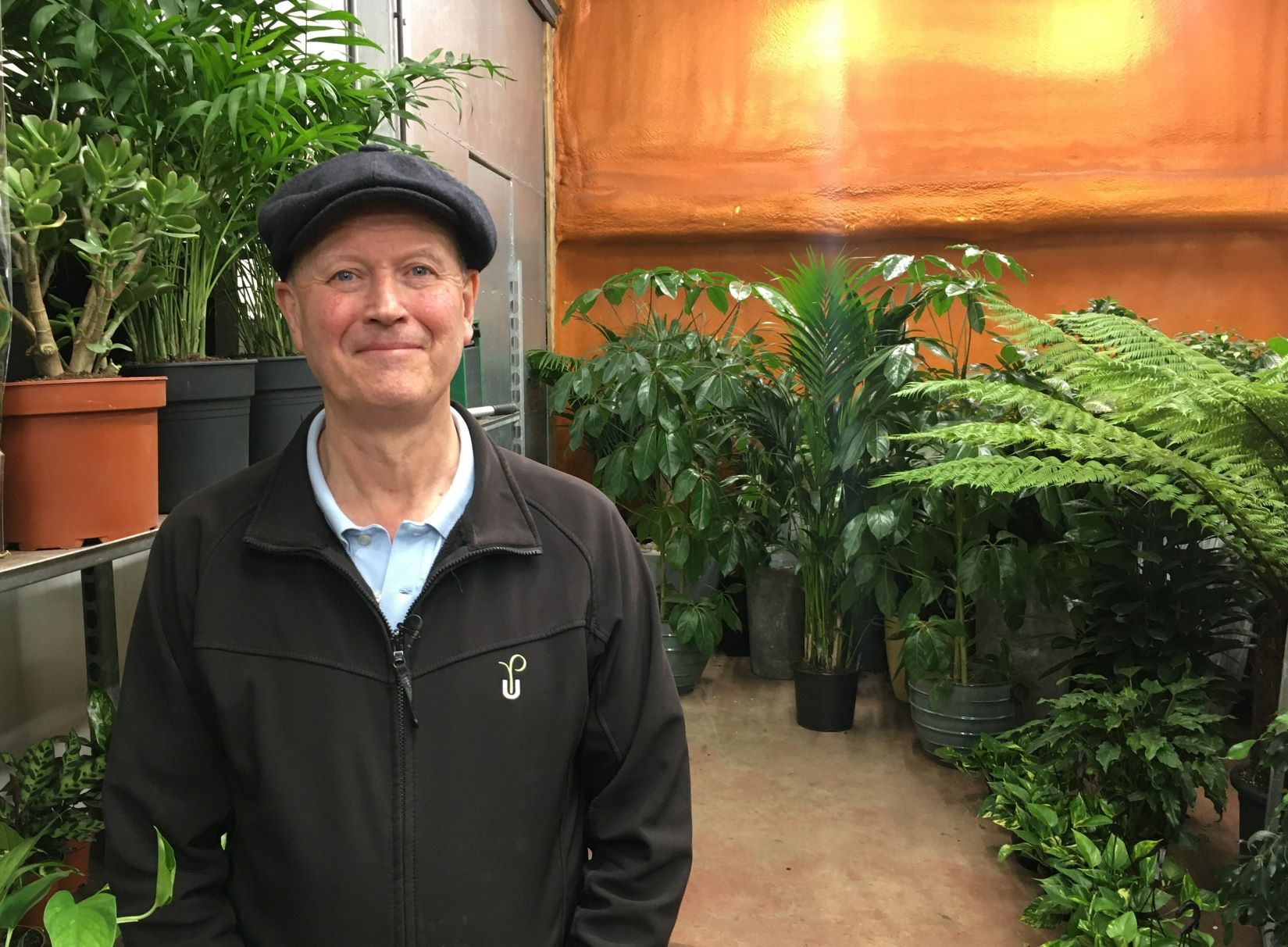
Evenbreak
As an experienced diversity and inclusion professional, Jane Hatton was well versed in the myriad difficulties that disabled people face in finding employment. In 2011, after she herself became disabled with a degenerative spinal condition – “I’m one of the 83% of disabled people who becomes disabled as an adult,” she says – the issue became up close and personal.
As did her response.
She started Evenbreak in her back bedroom: the idea was a job board solely for disabled candidates and for those employers who saw disabled people as a talent rather than a problem. Emphatically, it was not going to be a charity “because that would give out all the wrong messages about disabled people.” This was to be a social enterprise fulfilling a clear market need.
The job board has flourished. About 50,000 disabled candidates have registered on the job board, and about 30,000 of them are “actively engaged” with Evenbreak. Jobs all over the world are now posted on it.
Early corporate support came from Network Rail, John Lewis and Channel 4. Today, about 60 large organisations are on the board, with an increasing number of public sector bodies joining. “What’s really pleasing is the diverse mix of sectors and jobs,” says Hatton.
An online best practice portal along with consultancy and training, delivered by people with lived experience of disability, is provided to employers to help their efforts to become more inclusive and accessible.
But at the start of 2020, Evenbreak’s message was still proving to be a hard sell. “We were having to do a lot of persuasion, telling employers that this was about talent not pity, and selling the business case.”
As the pandemic hit, Hatton feared Evenbreak’s days were numbered as “nobody was recruiting anybody, let alone disabled people.” But as 2020 also witnessed a renewed and vigorous focus on equality and inclusion, an acceptance of working from home, and skills shortages, the situation changed dramatically. From the autumn of 2020, companies started to knock on Evenbreak’s door requesting its services, training and recruitment process reviews.
Interestingly, Hatton cites another significant factor as HS2. “As an organisation, they are very strong on promoting equality and they are influencing an enormous supply chain in construction and engineering,” she says.
The zeitgeist has changed. There’s more of an inclusive, intersectional general understanding that the world is diverse and we should reap the benefits of that. Non-disabled people are now saying that disabled people need to be included.
Evenbreak doubled in the pandemic year – and will double again this year. The potential is immense. There are 1.5 million disabled people looking for work – and we have 56,000 of them. We’re only working with 300 companies.
An approach by the British Library to participate in the Innovating for Growth programme was timely. In between applying to join and the start of the programme, Evenbreak was one of the winners of the Nesta Rapid Recovery Challenge which, among other things, provided £150,000 in funding for each innovator to put their scaling strategies into action, and offer non-financial support to the innovators to support them in their scaling efforts.
Winning the Nesta challenge enabled Evenbreak to create the Careers Hive, an accessible online platform where disabled candidates can find not only online resources and local relevant organisations but also a team of professionals with lived experience of disability who can offer bespoke individual and group careers coaching sessions. “We were constantly hearing that existing careers support was not always relevant or accessible to disabled people looking for new or better work,” says Hatton. As a service, it’s the only one of its kind in the UK.
The Career Hive had to be set up from scratch and its impact was going to be assessed by Nesta within weeks. “We had to grow it and our other services so that the Hive would be sustainable after the Nesta funding ran out. So the timing of the British Library programme could not have been better, as we had access to expertise and advice at a time when we absolutely needed it. The Hive is a different business model for us, so the programme was not only great for confidence building – knowing that we had support and were not on our own – but also helped us to develop solid financial models for the future of the Hive.
“When I started, there was very little support available for social enterprises – and social enterprises are different,” she says. “There’s a culture among social entrepreneurs; we are happy to be vulnerable, open and transparent, and we’re happy to help each other learn. We are not in competition but in collaboration, and in that collaborative learning is where the real magic happens.” She has also been on programmes such as Thrive run by UnLtd and the Lloyds Bank scaleup programme run by the School for Social Entrepreneurs.
Evenbreak is scaling up into a one-stop-shop for employers who want to become more disability inclusive, and for disabled candidates looking for work. But closing the disability employment gap is just a stage of the journey. “Our big, hairy audacious goal is for the world of work to be so accessible and inclusive, that there’s no need for an organisation like Evenbreak at all,” she says. “Ideally, we’d like not to need to have to exist.”
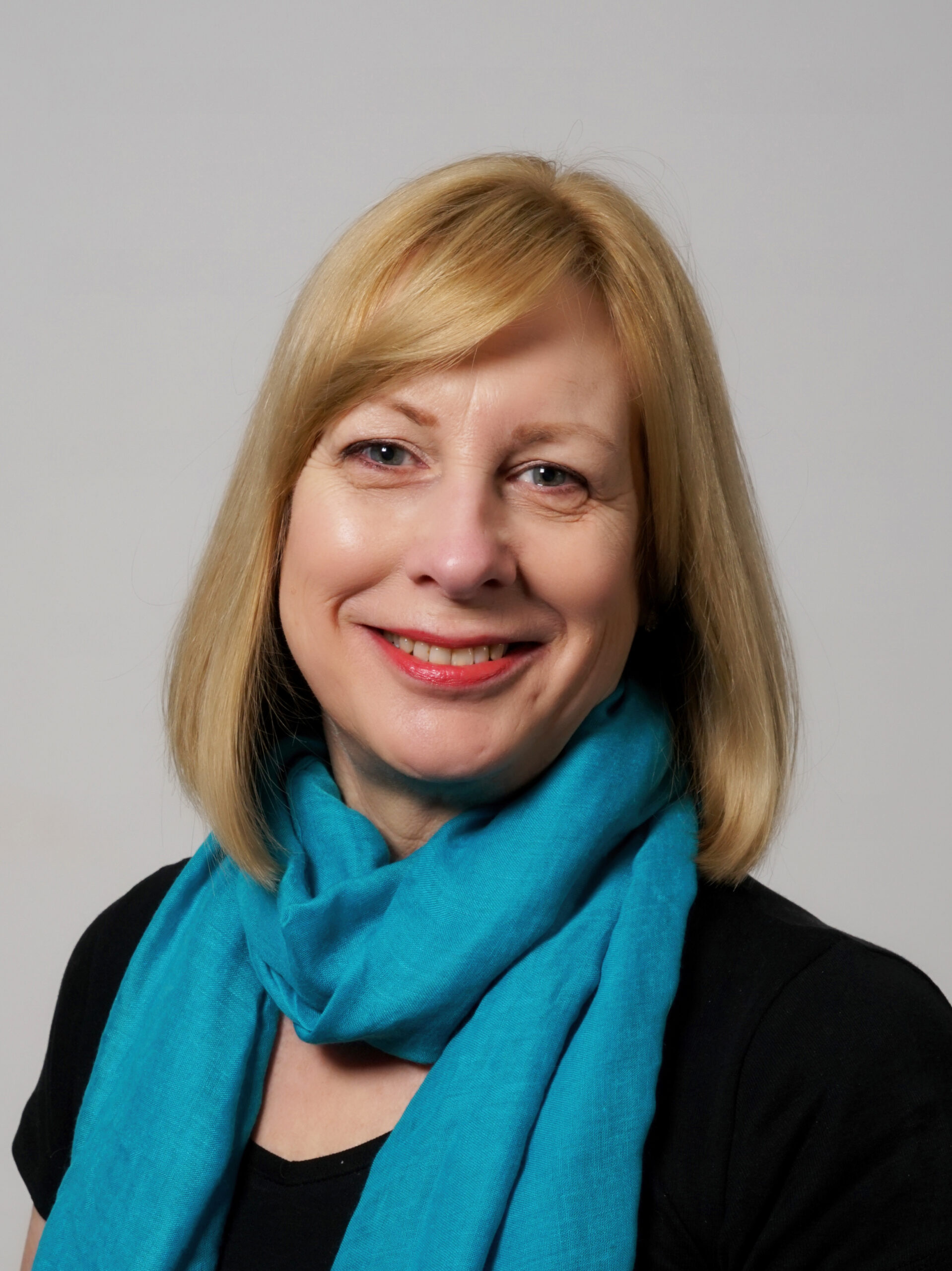
Ooni
Kristian Tapaninaho and Darina Garland launched their first Ooni oven project on Kickstarter in November 2012.
The husband and wife team had the initial ambition and dream was to create a pizza oven and tools that enable people to make great pizza at home. The fundraising quickly swept past their target figure, and their brand aspiration grew bolder – to become the world’s number one outdoor pizza oven brand. In a fragmented market, they achieved that goal in 2019.
The Edinburgh-based company was already scaling up when the Covid pandemic hit, doing everything from design, sales and marketing in-house. And then Ooni really put on the burners. More than three years of planned growth happened in 12 months. Turnover in 2019 was £13.5m; in 2020, it rocketed to £55m. Ooni has become one of the world’s top five brands in outdoor cooking.
Pre-Covid, Ooni employed 53 people. Today it has 210; with 150 in Scotland as well as operations in the USA, Germany and China.
Through its Kickstarter campaign, Ooni established a global audience from the outset. The US and the UK have been the largest markets to date but Tapaninaho is particularly excited about the potential in Germany and France as well as growing interest from distributors across the rest of world, from the Middle East to Japan.
To date, the business has been able to fund its growth out of cash flow. “Having high levels of demand with customers pre-ordering products has given us the confidence to grow,” says Tapaninaho. While the company does have a blanket of IP protections in place, “our biggest protection is to keep on innovating and introducing better products to customers – and acquiring more customers who are ready to spread the good word about our products.”
It has recently arranged a revolving credit facility with Silicon Valley Bank; partly to help plan further expansion but also to provide a buffer against spiralling container costs. “It’s pretty crazy right now, but it’s not viable for container costs to stay up that high for long,” he says.
As part of Ooni’s growth and development, it has been a cohort member of several growth programmes including Scottish EDGE and the Hunter Foundation’s Scale up Scotland Leadership Programme. “Scaleup Scotland was fantastic at the time, especially for the people and other businesses that we met,” says Tapaninaho. “We were getting ready to scale up and it really helped with getting our ambitions and mindset into the right place.”
As co-CEOs, the husband and wife team are members of separate Vistage peer network groups. “It’s really valuable to have these outside conversations. Both our groups contain a number of more mature businesses and the quality of the support that we get from other executives in our group is excellent.
At present, he is looking to bring in coaches for the Ooni executive team, as well as developing an internal coaching programme. A bespoke approach to leadership development is required to match their particular needs. “We’re a bit of an outlier as a local, fast-moving ecommerce business – and there aren’t that many of our size in the UK – but we’re also a product business that designs our own product.”
He is also focused on developing Ooni’s brand as an employer. “It’s hard when you’re very small, because you don’t have enough people to tell their friends what a good employer you are. With 200 people our reputation precedes and we have really invested in that. We try to be as good an employer as possible so that we have the pick of the best people.”
So from the start of 2021, Ooni increased its minimum salary in the UK to £25,000. (It also applies pro rata to interns.) Employees are entitled to 35 days of holiday. The company has instituted a passion fund: an annual £500 for each employee which they must spend on something they are passionate about. “You can’t buy everyday items; people use it to buy tickets for sports events or Michelin-starred meals. Darina spent hers towards buying a puppy this year.”
A similar approach underpins its wider corporate activities. Ooni has planted a tree for every product it has sold (last year, for example, it planted 2m trees in Madagascar). It also gives 1% of turnover to social and environmental projects. “Creating physical products means using the earth’s resources, so it’s our responsibility not just to reduce our own carbon footprint but to make sure that we leave the world in a better place,” says Tapaninaho.
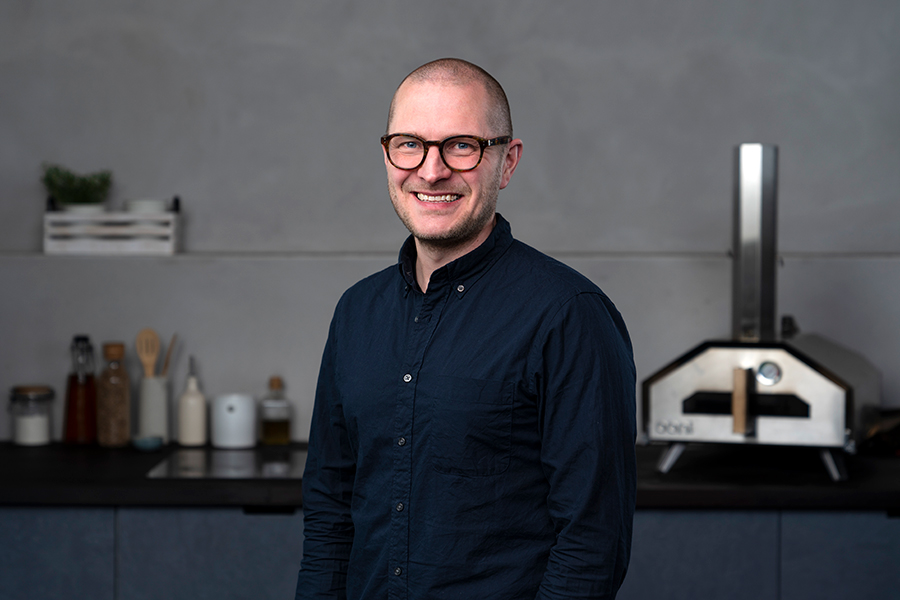
Form 3
Form3 started in August 2016 with four people, a few laptops and a white board. The big idea was that the banks would move from their established and expensive payments infrastructure – where they used licensed software, running in large proprietary data centres – to a cloud-based technology – where they would use a platform technology providing a payment-as-a-service model. Initially, this was the vision and practice of the new generation of neo-banks but now it is being embraced by the larger institutions who see this as the future of banking technology.
It is proving to be a very big idea. Revenues and headcount have been growing at an annual rate of more than 100 per cent. Currently, Form3 employs more than 270 people in 22 countries.
Form3 was never your ordinary fintech startup. Its CEO Michael Mueller was a seasoned banking executive who had been the head of cash management at Barclays, where he was responsible for the bank’s payment products (and a big buyer of payments technology). He came together with a group of angel investors who had also identified the need for better technology for processing and payments in banks’ back offices. “I can’t claim it was my idea but it has been the founding team’s execution from day one,” he says.
Since then it has received the backing of VC firms such as Molten Ventures (formerly Draper Esprit), who have been consistent growth investors since 2018. It is scaling through the hard slog of negotiating major enterprise contracts. A striking feature is the number of Form3 customers – Lloyds Bank, Nationwide, Barclays, Mastercard – who are also strategic investors.
“I said I would let them invest if they become a customer; they said they would become customers if we let them invest,” says Mueller. In 2020, Form3 brought in three of them – Lloyds, Nationwide and Mastercard – simultaneously. “Agreeing three major procurement contracts plus the investment commitments was the most complicated thing I have ever done,” he laughs, “but they all came in on the same terms.”
The procurement contracts are complex and substantial, covering the transfer of billions of domestic payments onto Form3’s platform. This is a core mission-critical process for a bank so the company is subject to exacting scrutiny, with the financial regulator also having an ongoing interest in any of these transactions. “You get no slack just because you’re small,” says Mueller.
In many ways, Form3 is a scaleup that could only have started in the UK. For more than a decade regulations have mandated the Faster Payments system, forcing the banks to be always on when it came to payments. “Starting in the UK gave us a bigger market than anywhere else,” says Mueller, “and from a technology point of view, the UK has had market leadership in this field. If I were to start this again, I would start it again in the UK.”
Now, as real-time payments begin to become the norm, overseas growth is a priority. And Form3 is going to be global. The company already has an Amsterdam office and is selling into European banks. It has just raised a £115m ($160m) funding round led by Goldman Sachs Asset Management, a good portion of which will go towards cracking the US market. Having the Goldman Sachs franchise on its calling card won’t hurt the business development charge.
For a man who until 2016 hadn’t thought of being an entrepreneur, it’s been an intriguing and surprising challenge. “Starting a business is quite easy, and making it through the first phase is OK,” he says, “but growing a business, when you’re dealing with a scale and complexity that you just don’t have when there are ten of you, is much more difficult. But it’s a very interesting journey every day and you appreciate all the help that you can get.” (And obtaining that help is set to be amplified, as Form3 has just been named as a member of the Tech Nation 2021 Future Fifty cohort.)
One of the biggest challenges for Form3 is in the war for talent. “We need back-end engineers with experience in cloud-native technology, but so does every tech company on the planet,” he says. The company has operated fully remote working from its inception. It has a couple of offices but these are meeting points rather than workplaces. This structure used to be a USP but disappeared in the pandemic, he says. But it is reappearing; “as companies start asking their employees to come back to their offices, we’re not.”
The company is currently hiring 10 to 15 software engineers per month. For every software engineer that is hired, Form3 interviews between 40 and 50 candidates – hiring in more than 20 countries. “We are limited to hiring in certain geographies where the data protection regime is similar to that of the UK and we can only work in countries where we have faith in our background checks,” says Mueller.
To achieve that, the company has an in-house recruitment team of more than 20 people – so nearly eight per cent of its staff are purely involved in recruitment. “There are not enough software engineers in the UK to satisfy the industry’s needs,” he says. “It is a major problem for the tech sector.”
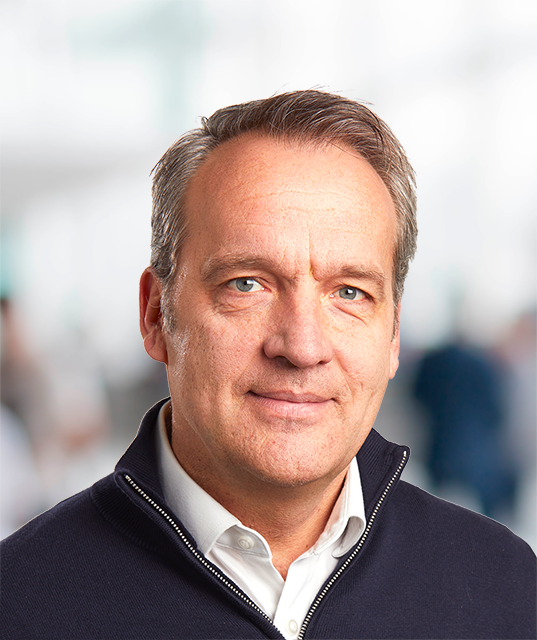
Blake Mill
A mechanical engineer joins a mathematician and a physicist, all with expertise and backgrounds in financial technology, to start a business.
A fashion business. To be more specific, men’s apparel: art-inspired, conversation-provoking, loud, bold men’s shirts with designs such as “Lava Flows” “Rorschach Skulls” and “Musicians Diary.”
After the initial route through retail stores proved frustrating, they decide to go direct to consumer in the autumn of 2018. Currently, it is exclusively focused on selling into the UK market.
Today, Blake Mill’s shirts are flying out of the warehouse. “We didn’t know a whole lot about design but we did know about scaling a business up, says co-founder Ken Price (the mathematical engineer). “We have steered clear of bricks and mortar side so we don’t have high fixed overheads. The scalability of this business is just tremendous. There’s no reason why this won’t be a £5m business next year and no reason why it couldn’t be a £100m revenue company in five years.”
The company is based in Manchester’s city centre. “If you’re not in London, Manchester is the next best place in the UK to have a fashion enterprise,” says Price. “There’s tons of talent in digital marketing and fashion here.”
His current priority is capital raising. To date, the founders have invested their own funds but the scale of the opportunity means external finance. At this juncture, he is minded towards crowdfunding, given the supportive and affluent base of repeat customers that the company has established. “From a marketing point of view, it would also be a positive move,” he adds.
Once the capital has been raised, Blake Mill aims to expand its men’s product range; then to expand geographical coverage; and then to begin to expand into the women’s wear market.
“We are not going back to full occupancy in offices every day of the week any time soon, so we will go beyond shirts into leisure wear,” he says. “But men will still want to look good.”
Price is intrigued by the potential for using technologies such as blockchain and RFID tags to highlight the provenance and traceability of their shirts. “We can start to get clever with the products beyond the designs themselves,” he says.
As far as new markets are concerned, the US and Europe are the main targets. But Europe has become expensive since Brexit: “the only way we can expand into Europe is to set up a partnership with an EU-based fulfillment centre, which means doubling our inventory to keep that fully stocked.”
For these seasoned business professionals who gained their MBAs decades ago, building a fashion business is proving to be quite an education. So Blake Mill participated in the Creative Scaleup programme. “It was a refresher in some ways and cleared some cobwebs,” says Price, “but I learned a fair amount about digital marketing and analytics. Given the quality and density of the creative sector in this city, it was a pretty good networking opportunity.”
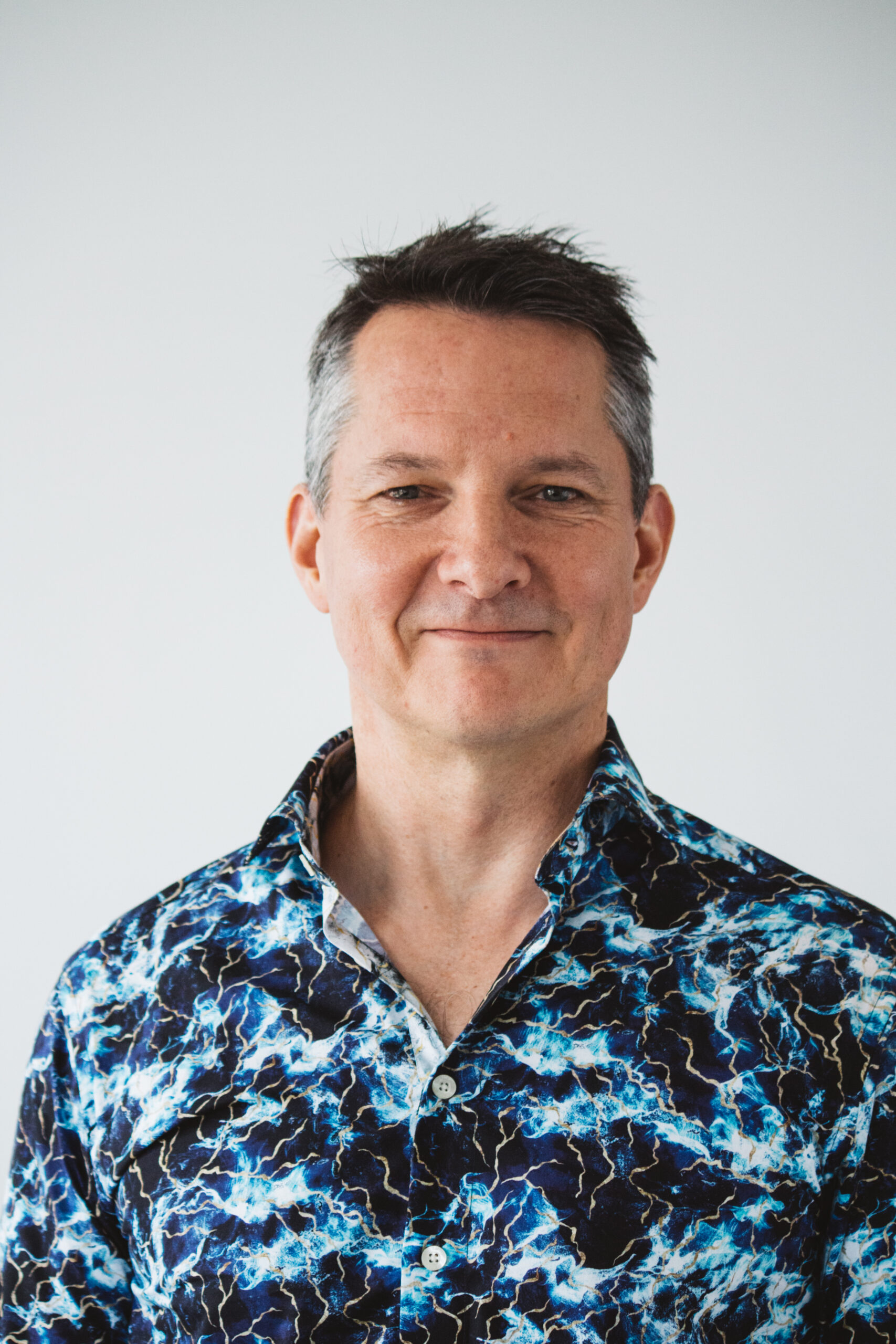
GuyKat
Guy McEvoy set up the Birmingham-based e-learning business GuyKat in 2009, after a career in project management in blue-chip organisations including PwC and Cadbury-Schweppes. Over the next ten years, he ran it conservatively and happily. His company could provide the e-learning platform – via a partnership with an Italian company – and create the content.
Now steady growth has been replaced by scaleup growth.
Between 2019 and 2020 GuyKat doubled revenues, with 70% of sales coming from outside the UK. Turnover has doubled again in the past year to hit £3.5m. The number of permanent staff has increased from 25 to 40. A business in Tampa Bay has been acquired, catalysing further growth in North America. With clients in five continents ranging from L’Oreal to Amnesty International, its training has been deployed in more than 50 countries.
The digitalisation of the economy has accelerated change – and GuyKat has been a beneficiary.
“Over the past 20 years, the barriers to e-learning have been progressively eroded,” says Guy McEvoy, CEO and founder of GuyKat. “There was an objection that it wouldn’t be fair because some members of the workforce might not have the basic digital skills to access training online. Now everybody orders their shopping on Ocado.
The Covid pandemic has put paid to corporate resistance to e-learning, he says. “The genie is out of the bottle. Training sessions were based on the assumption that they required everyone to be on site. Once an organisation has had a good online learning experience it begins to question why it doesn’t use online learning for everything and at scale.”
With greater digitalisation comes a digital workforce. “The expectations of Generation Z about how information is communicated to them is that it’s instant and bite-sized. This is a generation that has grown up with YouTube and Google. It melts their heads that a workplace can’t deliver the relevant chunks of information they need at the point at which they want it. Smart organisations recognise this and want to adapt their communication accordingly. They need someone like us to help them.”
But just as importantly as mega-trends in technology and society has been the change in McEvoy’s own outlook. That change flowed from his participation on the Goldman Sachs 10,000 Small Businesses UK programme. “I was quite happy with the business when I joined the programme but I wanted to understand what it would involve if I really wanted to scale it up.”
GuyKat has been a prudently run business – throughout its life it has been funded entirely through organic cashflow – and that prudence has been justified. One unshakeable McEvoy mantra was to have one year’s worth of cash in the bank to cover operational costs. “People laughed at me and said I was nuts…but it didn’t seem nuts when Covid kicked off.”
However, he acknowledges, the biggest barrier to the growth of GuyKat had been “inside my head.” And the programme gave him the tools to chip away at that barrier. Of particular value was the peer network – “it was genuinely good to sit with a cohort of people who sit where you do,” he says.
Now that he has set his eyes on growth, the next big challenge is talent. “Our problem is capacity, not demand, so have to grow our delivery capacity,” he says. “We could be ten times bigger, if we could recruit the right people faster.”
GuyKat has put a career framework and a structured graduate scheme in place. Given its location, it’s particularly close to Aston University and the University of Birmingham for its graduate recruitment drive. It has also made use of the Santander internship scheme and has used the new Help to Grow scheme to build up its internal leadership capacity. The mindset of growth started with the founder; now Guykat is committed to cultivating that mindset throughout the growing organisation.
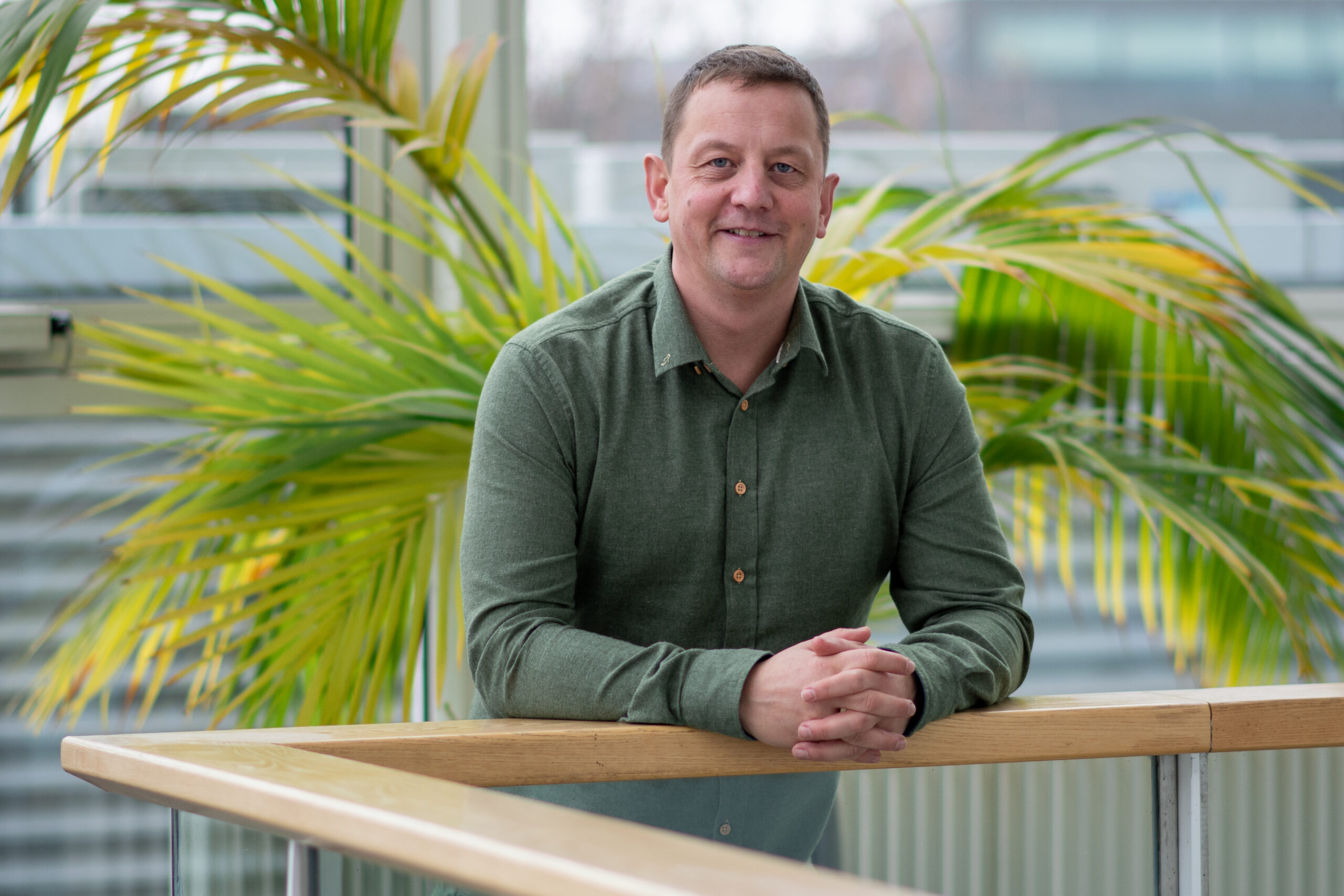
The Figaro Shop
In 2011, after years of acute drug addiction and homelessness, Tobyn Brooks did something surprising and remarkable. He started a business. He didn’t have anything: no business experience, not even an email address.
Starting by selling car parts on eBay, he saved enough money to buy a Nissan Figaro – the cult retro vehicle of which only 20,000 were ever made. The Figaro had not been intended for sale in the UK – it was a grey import.
Providing repairs and maintenance for the owners of Figaros proved to be a niche as neat as the car itself. As Nissan ceased making a specific part for the Figaro – and it made very few in the first place – Brooks stepped in. His Figaro Shop would get parts made as well as carry out repairs and soon became a trusted source of information for all Figaro owners.
But this has not been easy. Few founders will have faced similar early struggles. As Brooks’ business developed, his health deteriorated dangerously. He was struggling to walk because of the damage inflicted on his vascular system. As he spent several months in hospital and longer in rehabilitation, his business colleague Danny Smith stepped in. The pair agreed a deal in which Smith gradually took a stake in the business.
“At the time it wasn’t clear whether I would completely recover,” he says. “But I did – and our partnership became very strong. Generally, he deals with the operational side of the business, and I deal with the growth.”
And now, from their 25-strong repair shop in Didcot, Brooks and Smith have big plans. The facilities are already being used for general accident repair. The acquisition of a small group of garages is under way, which will bring revenues to £4.6m and the employee count to approximately 40.
Today, the proud claim is that the Figaro Shop is “the world’s leading specialist Nissan Figaro garage.”
That’s because it not just for British owners. Overseas owners started to ship their Figaros to Didcot for restoration. Nearly two-thirds of the Figaro Shop’s parts travel outside the UK and EU, mostly to the USA.
It’s an opportune time to grow. Throughout the pandemic The Figaro Shop has increased revenues, profits and headcount. “We have made some great strides,” he says. International expansion is on the cards: “we will at some point open a branch in in the USA,” he says.
As the Figaro Shop has grown, it has drawn support from Oxfordshire LEP, both through grants (to boost its digital presence) and via its eScalate programme for scaleups and socially minded enterprises. As a result he became part of the Scale Up Network run by Oxford Brookes Business School. “Meeting my peers was helpful,” says Brooks, “but so too was meeting the people who are running the groups. It’s enabled me to connect with many mentors, consultants and advisers. I have been learning about the practices we can adopt from bigger businesses but also what corporate traps we shouldn’t fall into.”
One area for potential growth is the electrification of classic cars although this is an expensive process. In this area, he says, R&D tax credits have been important for the company.
It is just one aspect of what Brooks describes as “ecological repair.” Another aspect is using recycled materials instead of leather that has traditionally been lavished on classic cars. “We want to look at creative ways to be more sustainable in the long term,” he says.
To grow, talent presents a real challenge. “We hire on attitude and then teach people,” says Brooks. “It’s much more successful to hire people who will fit with our culture and have the mindset that will help them get further – and then worry about the skills.” One source of recruitment has been the Army; The Figaro Shop is a signatory to the Armed Forces covenant.
“It’s important to give other people a chance,” he says. “The automotive industry has brought me success and happiness and a feeling of belonging, of being able to contribute. I want to help other people find that.”
This is the wider mission that he has set for The Figaro Shop. “My big goal is to try and prove that a socially focused enterprise can be highly profitable and commercially successful,” he says.

Sales Geek
Although he was the global sales director for a substantial North American corporation at 32, Richard Few had hit the proverbial wall. It was time to do his own thing.
The concept for his venture was straightforward: to provide sales directors on a fractional basis to small and medium-sized companies. He left his job in February 2017 and was fully booked by September. “There are many small business owners who aren’t from a sales or marketing background and this solved their need,” he says. Soon he and wife and co-founder Lucy connected with another experienced sales leader, Jonathan Finch, who was about to set up a sales training business; they joined forces in the summer of 2018.
By providing part-time sales directors and by training sales people, Blackburn-based Sales Geek began to motor. Revenues were doubling each year. Employee numbers were increasing. Bigger offices were needed. In mid-March 2020, the company won a hat-trick of trophies at a local business awards. “We were in a really exciting place,” says Few.
When the pandemic hit, income fell off the cliff. As profits and cash had been reinvested into the business, reserves were scant. But Sales Geek didn’t just hold on; they used their time to develop new products and services that have become the keys to their growth.
The first was to create an app-based digital sales academy and what Few believes to be the world’s first free sales training app. It has rapidly acquired tens of thousands of users and has been downloaded in 11 different countries, he says.
The second move was to build out the franchise model for the part time sales director service; operating under the brand of Your Sales Director, it was launched in January 2021. While there’s still a north-western bias in the spread of franchisees, there are now nine on board. And a second franchise model has been developed for sales training under the brand of Your Sales Trainer, which gained its first franchisee in London.
“The pandemic gave us time back and it changed our customers’ attitudes,” says Few. We had been struggling to get companies to adapt to using Zoom or Teams. Now, we have a much wider geographical base of customers. We have been able to grow without the confines of geography and that’s been really exciting.”
Sales Geek’s growth has been assisted by its participation on Lancashire County Council’s Two Zero Resurgence programme – a 90-day fully funded programme delivered to 25 Lancashire businesses to help them return to their high-performance track. “The public sector can get stick from the business community but you couldn’t criticise their speed of reaction in getting this programme up and running,” he says. “At the best of times, it can feel lonely being the founder or owner of a business. It feels more so in the middle of a crisis.
He says that he immediately liked the peer-to-peer model of the programme. “Just being involved in meeting peers and spending time, albeit virtually, with people going through many of the same challenges is reassuring. You quickly realise that you’re not the only one having to deal with these issues and I felt hugely supported by being part of that community. We have maintained several of those connections well beyond the length of the programme.”
The experience inspired him to get involved with the peer network Vistage which, he says, “has helped me even further. The chair of our group has been a great mentor to me.”
He describes Sales Geek’s app and franchise model as “two racehorses,” both of which he intends to let them both gallop.
For the sales training app, the opportunity is global. The goal is to hit one million users within the decade. Sales Geek’s technology is also being white-labelled for other sales organisations.
For the Your Sales Director service the target market remains companies in the £100,000 – £5m turnover bracket, retaining a part-time sales director for a certain amount of time per month usually for a six-to-12 month period. “We have looked after more than 350 clients in the last four years with that model,” says Few. “It just works.” As the UK will only have capacity for a certain number of Your Sales Director franchisees, Sales Geek is already exploring international growth.
“We’re not far away from launching Australia and we’ll probably launch in the US in 2022.” In both cases, Sales Geek will look to operate through master franchise models in which the master franchisee will run both Your Sales Director and Your Sales Trainer. “There are some challenges in the barriers to entry into some of these international territories,” he acknowledges. “From a licensing and legal perspective, landing in the US is very expensive.” He has been put in contact with the Department for International Trade. “I always thought that export support was just for manufacturing and engineering businesses,” he says, “so it has been great to learn how keen they are to support the international growth of services businesses.”
There’s a wider lesson here, he adds. “In any local area, do businesses take the time to fully explore all the support that is available? Probably not, because we have our heads down doing our own stuff. But as our business is scaling up, it’s my role to explore this. And there is a wealth of support out there.”
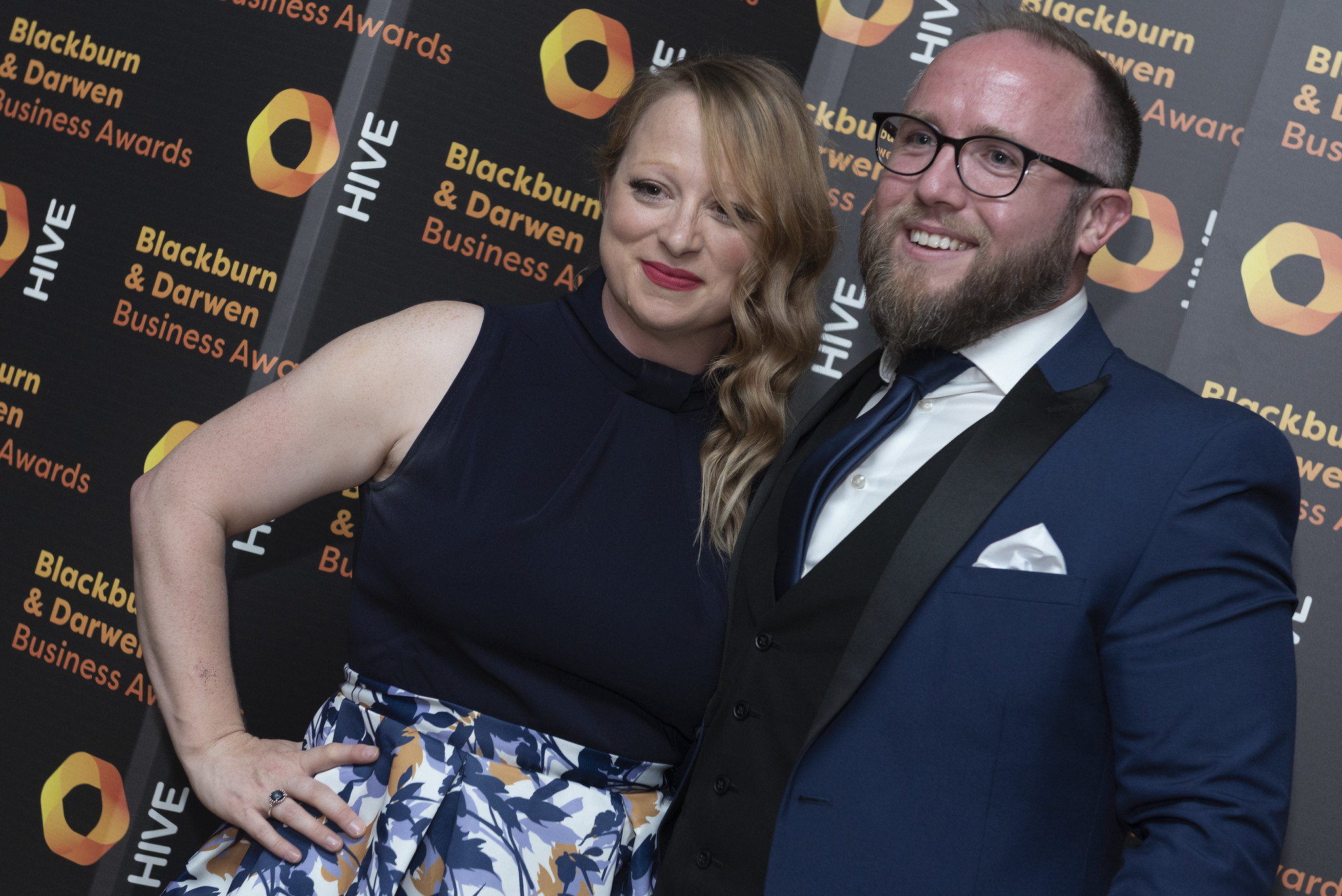
Absolutely Collagen
Absolute Collagen was founded in 2015 by Maxine Laceby and her eldest daughter Darcy, after she experienced for herself the positive skin and wellbeing benefits attributed to the collagen contained in homemade bone broths. From her kitchen, aged 50 and with no prior experience of starting a business, she set out to create a pure collagen product.
Her ADHD helped. “It’s my superpower, as I’ll always find a way. When I took my product to an experienced blender, they thought it wouldn’t work – but I had found a way in my kitchen to overcome this.” By 2017, Absolute Collagen’s ready-mixed sachets of hydrolysed marine collagen were on the market.
From there, crediting her daughter Darcy as the professionaliser of the business, Maxine rapidly created a highly successful direct-to-consumer wellness brand. The kitchen table startup recorded turnover in 2020 of £17m; this year Absolute Collagen is on track to doubling this figure this year.
From the outset, it has been a direct-to-consumer brand. “I was told that we needed to be stocked in Holland & Barrett and Boots but I knew that consumers needed to be educated and I wanted to stay close to them, giving them the best possible service,” she says.
At the start of 2020, eight people were working out of her home, packing 3,000 parcels every day in the garage. Now, with a warehouse in Telford and an office in Birmingham, there are 41 on the payroll.
In December 2020, the middle-market private equity firm Livingbridge invested £15m, valuing Absolute Collagen at almost £43m. There had been four offers on the table
It’s been a remarkable journey, with a valuable role played by her participation in the NatWest Entrepreneur Accelerator and Next Level programmes – which she had joined in 2018.
“It helped me massively,” she says. “It was good to be with like-minded people from different businesses. It enabled me to look at my business and myself from a different viewpoint and I could learn and validate what I was doing.” And the programmes gave her the understanding and confidence to go forward with the transaction with Livingbridge.
“The process of preparing for PE investment was so educational,” she says. “It is in itself a brilliant process; business owners should go through it, whether or not they take the investment.”
The growth plans for Absolute Collagen are both in new markets and new products. In their due diligence process Livingbridge’s data team had identified further potential areas in the UK market, so those are being keenly scooped up.
International growth will be taken slowly and steadily. Absolute Collagen is launching in France. “We must have a presence on Amazon but I do not want Amazon to own my business and my customers. For me, Amazon is a tool for market testing countries and for new product development.”
“The direct to consumer model means that we have a very good relationship with our customers. They champion the brand and they talk to us.”
Next year will see Absolute Collagen launch into a new product area. “Our new product development is based around talking to consumers and we’ll be investing heavily in consumer education and marketing.
And the company will mature. Although Laceby remains the majority shareholder, she will not remain the CEO. (Her daughters are remaining in the business: Darcy as Chief Brand Officer while 21-year-old Margot is in the creative team.) “When we talked to investors, I was clear that I was not the right person to be CEO for the business going forward. It needed someone with a proven track record. And the private equity houses liked hearing that, as it meant I knew myself and my business.” A new CEO is expected to be appointed soon.
Laceby recognises what she has achieved but places her emphasis on the team around her. Where she has been excellent, she says, is “knowing where I’m not excellent. I could barely switch on a laptop when I started yet this is a successful online business.”
Perhaps, she reflects, it stems from her 25 years as a mother. “There’s no difference between being a mum and an entrepreneur,” she says. “You lead; you ensure everyone is OK; you work bloody hard.”
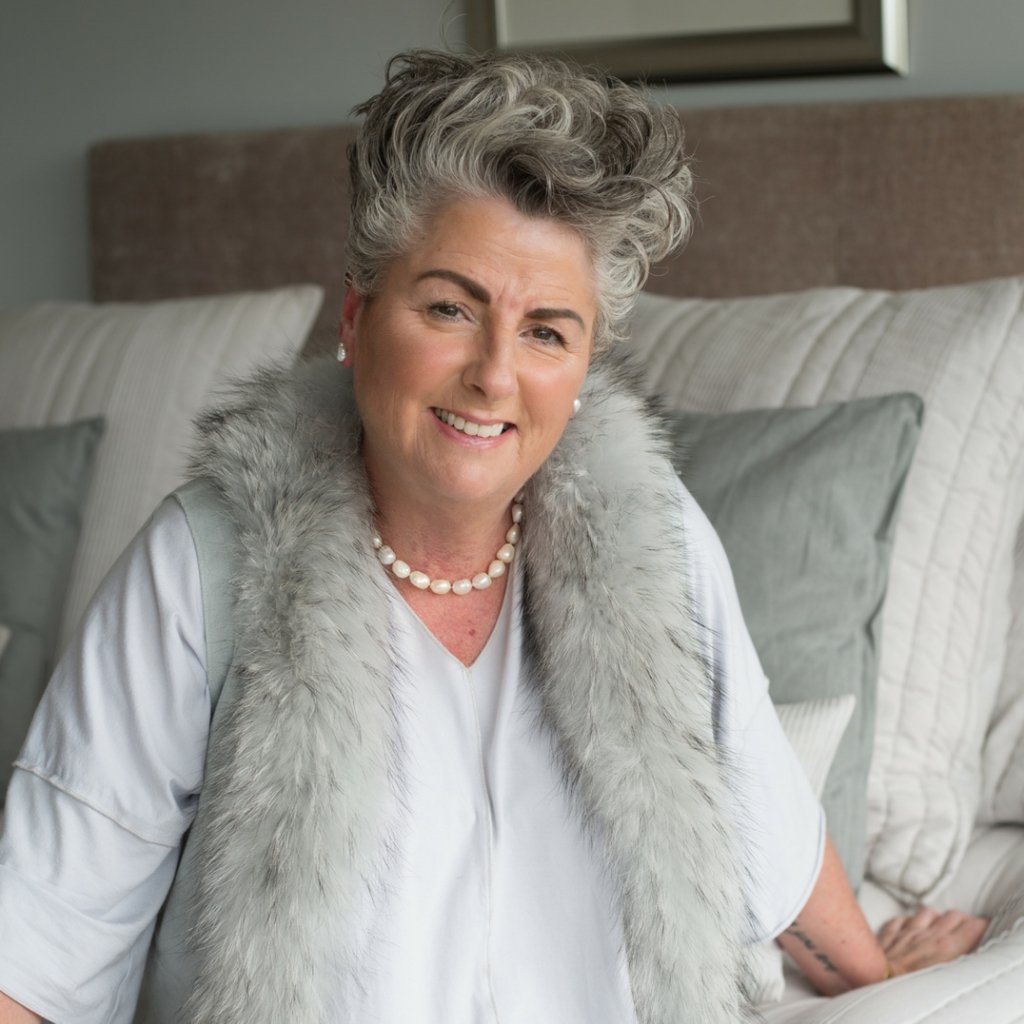
Robin AI
Robin AI is making contracts simple by automating contract management using a combination of software, machine learning, and expert human reviewers.
‘Every business transaction requires the exchange of money and a contract,” says its founder and CEO Richard Robinson, a corporate lawyer turned entrepreneur. “But while payments technology has been constantly changing, the way we draw up contracts hasn’t changed for decades. We use general purpose tools that were never designed for contracts and, as a result, the process of agreeing to deals is too long, slow and expensive. And you end up with a document that’s written for a judge, not for the business stakeholders who have to use it to manage their relationship. That’s just not good enough.”
Robin has created a system in which AI works with human lawyers instead of taking their place. The system has been trained on contract data – from documents in the public domain and those provided by clients – and taught to look for particular elements. Anomalies, and issues which the software cannot interpret, are checked by human reviewers.
The business, which started in 2019, received valuable early support from the Creative Destruction Lab, a mentorship programme run by Oxford University for massively scalable, seed-stage technology companies. This introduced Richard to “mentors who are all luminaries in the world of software and technology” in a series of intensive full-day sessions. “They would give candid feedback on how we were doing and on our priorities. It was pivotal in helping us maintain focus, giving us validation that we are on the right path, and opening up access to people who could help us shape our direction. It was a really big help.”
Two rounds of finance amounting to £2.5m have been raised to date: the first from Forward Partners and the second from Episode One alongside a group of angel investors.
After the seed round, Robin received backing from Google’s Black Founders Fund – a programme which selects 30 startups with missions to change the current state of diversity in tech. On top of cash grant funding, Robin has received grants and credits for Google services and support from Startup Partner Managers at Google.
“I had thought, once we raised the seed round, that we would not qualify for this support. But Google said that the primary goal is to support companies led by underrepresented founders who they thought would be likely to succeed. So the fact that we convinced external investors was a positive signal. We get great access to Google employees and we have had a lot of coaching and support.”
Very recently, Robin has also been admitted into the Emerge accelerator. Led by the SoftBank Vision Fund, it brings together a coalition of top tier seed stage investors from across Europe to provide a customised eight-week programme for founders from underrepresented communities.
Robin’s focus has been on the “high volume, high burden, daily contract work in which private equity funds, law firms, and companies find themselves mired. We leverage technology to take that work off their desk at an affordable and transparent price.”
As a young business, it was a challenge getting through procurement departments. “We set up Robin as if it was a law firm, with similar grade security” he says. “We had to be robust and secure, investing capital and time in building a proposition that could convince procurement teams.”
And that will see the team continue to grow: “we expect to be at 30 people by the middle of next year,” he says. “We’ll grow our headcount in a reasonable and responsible way and if we’re able to access more capital, we will accelerate that hiring.”
Richardson says that the team are having “success and traction” in the private equity fund sector – “so we’re going to double down on that” – but plenty of conversations are happening with in-house legal teams in large corporates.
Finding the right salespeople is one of his biggest challenges. “We really do need people who can sell to lawyers; it’s a very specific skill set.” But generally, the talent issue is the biggest challenge to executing on plan. “Record amounts of VC money have been invested over the last 18 months in Europe and it’s being spent on people. Young, ambitious companies are spending about 80% of the money they raise on people. We are all fighting for the best salespeople, the best marketing teams and the best engineers.”
While Robin doesn’t need to raise further funds until 2023, Richardson is certain that it will. “We’re operating in clear blue water and we see plenty of demand, so there will be an opportunity to accelerate.”

CONTENTS

Introduction 2021

Chapter 1 2021
The ScaleUp Business Landscape

Chapter 2 2021
Leading Programmes Breaking Down the Barriers for Scaleups

Chapter 3 2021
The Local Scaleup Ecosystem

Chapter 4 2021
The Policy Landscape

Chapter 5 2021
Looking forward

Annexes 2021

Scaleup Stories 2021

 Previous
Previous

Share